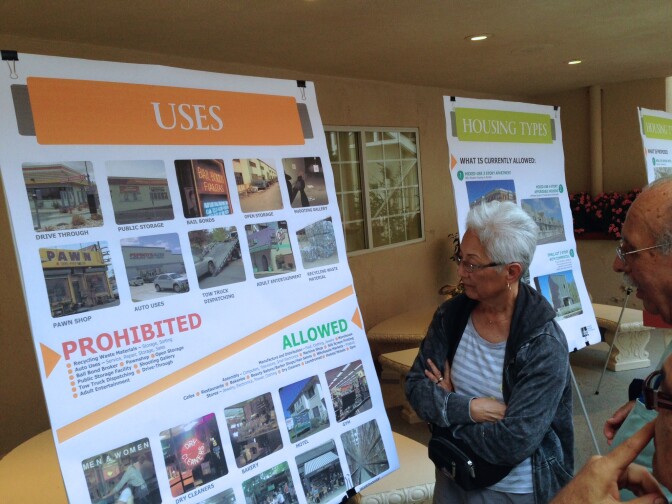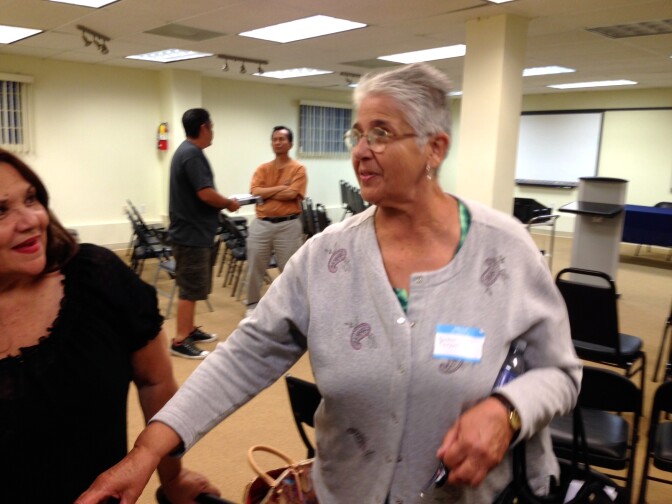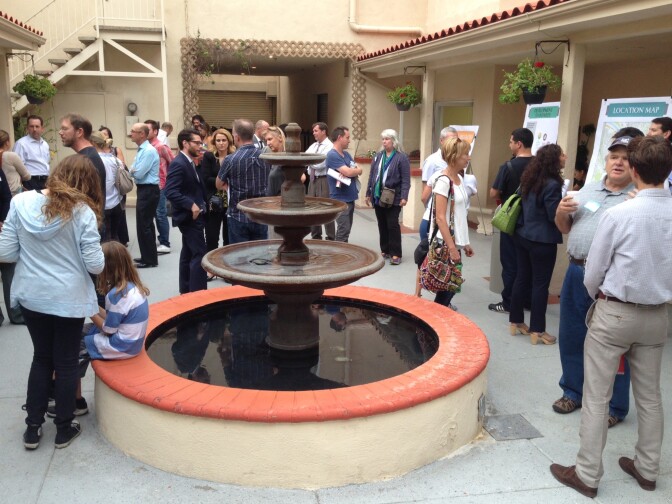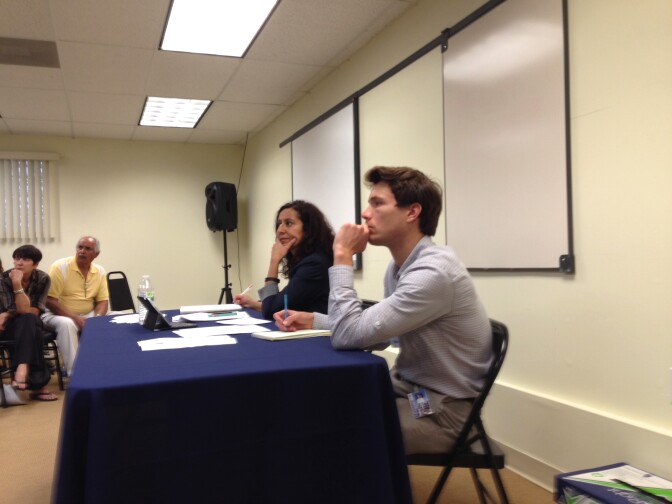This story is free to read because readers choose to support LAist. If you find value in independent local reporting, make a donation to power our newsroom today.
This archival content was originally written for and published on KPCC.org. Keep in mind that links and images may no longer work — and references may be outdated.
Residents fight for Frogtown's future at zoning hearing
It was standing-room only at a hearing Tuesday night that drew nearly 200 people to Frogtown, a neighborhood in northeast Los Angeles that's seeing a wave of new construction.
The topic at hand was development — how much should there be, and what kind?
Many of the residents who attended the hearing said they worry that new construction will swallow up their neighborhood in the Elysian Valley, which borders the L.A. River.
"We built this community," said Susan Campos, 68, who has lived in Frogtown most of her life. "We put our blood, sweat and tears into it, and what’s going to happen later? We’re going to sweat blood and tears and where are we going to go?"
A proposed billion-dollar river restoration has spurred developers to buy up riverfront property in the neighborhood. Residents have complained more recently that developers will create a wall of construction that will block off views and access to the river.
That prompted the city's planning department to propose new zoning regulations, which include a height limit for new buildings on commercial lots — no more than 30 feet high — and that they take up no more than half the lot. These size restrictions are also aimed at curbing traffic and parking problems.
Planners are also trying to counter concerns about the rising cost of living in Frogtown by allowing for affordable housing — a densely-built alternative to streets lined with low-slung, single-family homes.
Some of the 28 people who testified at the hearing said city planners were headed in the right direction, although the residents also suggested some regulations of their own.
On the issue of affordable housing, some like Helen Leung — co-executive director of the non-profit design organization LA-Más, and also a long-time Frogtown resident — didn’t think planners were allowing for enough density to properly build affordable housing.
"With height and lot restrictions, it’ll be hard to make a project like that feasible," Leung said.
David de la Torre, on the other hand, didn't see the benefit of affordable housing, since the city cannot legally set aside units just for Frogtown residents.
"As much as I would love affordable housing, it's a lottery that is open to everyone and does not guarantee that the Elysian Valley residents that might be displaced or are looking to find affordable housing are actually going to get any of these units," de la Torre said.
Others such as Craig Young wanted to protect the manufacturing facilities that have populated Frogtown for decades. He owns Wittler-Young, an air-conditioning business that moved into the neighborhood in 1980, and is worried zoning would favor residences over long-standing commercial enterprises.
"These are manufacturing facilities that have machinery, operating loud noise," Young said. "We have daily deliveries that block streets because of limited access that we already have."
Some of the most emotional testimony came from long-time residents of this predominantly Latino, working-class community, who would rather not even be having a conversation about zoning in the first place.
Elena Lovelis said residents still remember the displacement of Mexican-American families living in Chavez Ravine in the 1950s. The city took their homes by eminent domain to make room for a housing project that never materialized. Lovelis worries that could happen today, despite there being no talk of eminent domain. She envisions the city taking homes in Frogtown to widen streets or improve infrastructure for new developments.
"I want to go out of this neighborhood feet first," Lovelis said. "I’m going to die here. I don’t care how many millions my property is worth. We’re not going to go out without a fight.”
City planners will use input from the hearing to make recommendations to the city planning commission. The city council could vote on the zoning changes sometime this summer.













